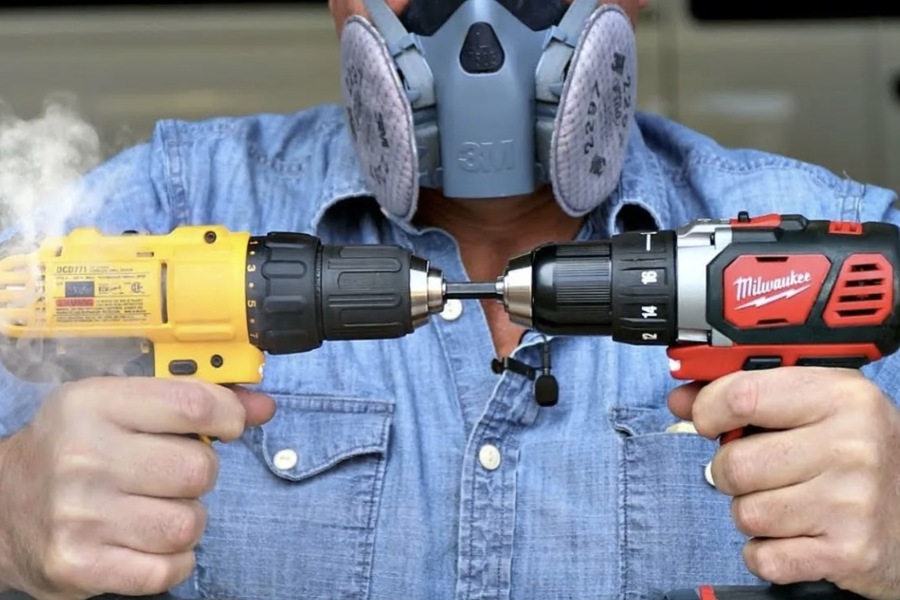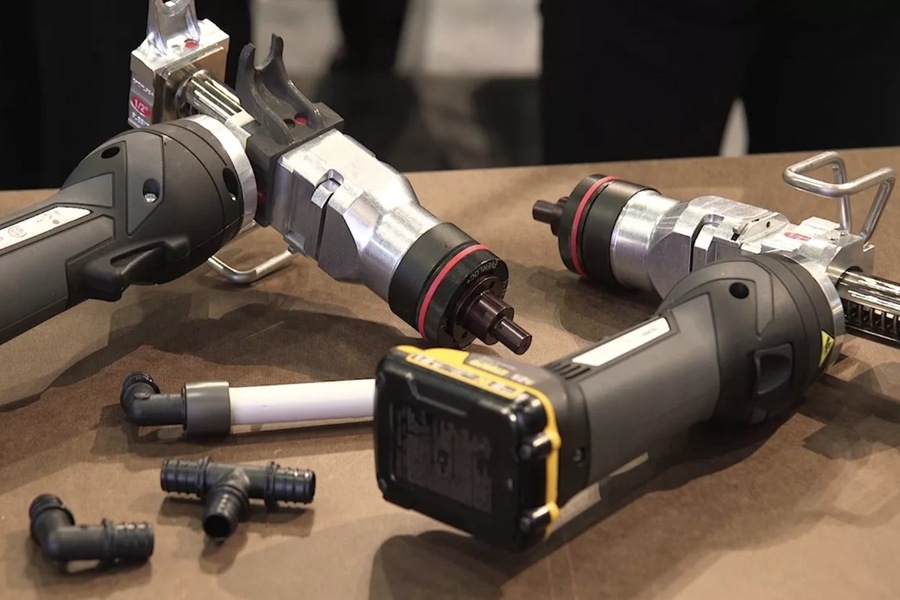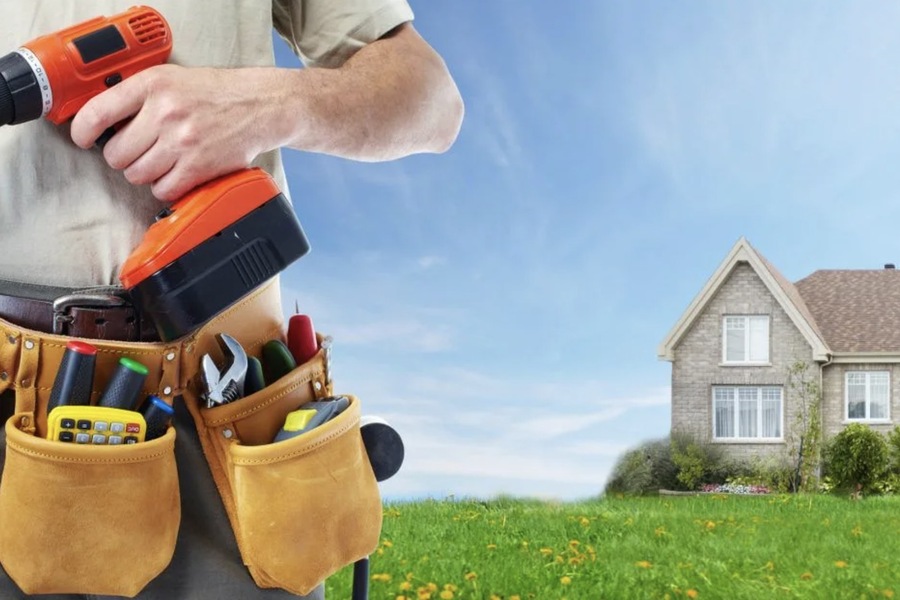
How Dubai’s Climate Affects Cordless Tool Performance and Maintenance
Dubai’s climate, known for high temperatures, intense sunlight, and humidity, presents specific challenges for cordless tools. While cordless drills and other portable tools provide flexibility, the environment can impact their performance and longevity if not properly managed. This article explores the effects of the UAE’s climate on cordless tool performance, discusses best practices for maintaining these tools, and outlines ways to ensure optimal functionality.
The Impact of High Temperatures on Cordless Tool Performance
Dubai experiences temperatures that frequently exceed 40°C (104°F) during the summer. These conditions can negatively affect cordless tools, particularly their lithium-ion batteries, which are sensitive to heat. High temperatures can lead to faster battery discharge, reduced capacity, and, in extreme cases, cause thermal runaway—a condition where the battery overheats, risking damage or failure.
To mitigate these risks, it is recommended to store cordless tools in temperature-controlled environments and avoid leaving them exposed to direct sunlight or inside vehicles during the hottest part of the day. Working in shaded areas or scheduling tasks during cooler hours can also minimize the adverse effects of high temperatures.
How Humidity Affects Electrical Components
Dubai’s humid environment, especially along coastal areas, introduces challenges related to moisture exposure. Although cordless tools are designed with protective housings, humidity can still penetrate enclosures, leading to corrosion of internal components such as switches, terminals, and connectors. Over time, corrosion can impair the tool’s electrical conductivity and cause malfunctions.
Preventive measures include frequent inspection of terminals and connections for early signs of corrosion, along with the use of moisture-resistant storage solutions. Tools not in use should be kept in sealed containers with silica gel packs to absorb excess moisture. Regular application of electrical contact cleaners can also reduce the risk of corrosion in high-humidity environments.

Battery Life and Maintenance in Extreme Heat
Lithium-ion batteries, widely used in cordless drills and other tools, are highly susceptible to heat-related degradation. Prolonged exposure to high temperatures accelerates the decomposition of electrolyte solutions inside the battery cells, leading to decreased capacity over time. As a result, batteries may hold less charge and require more frequent replacements.
Manufacturers recommend maintaining batteries within a temperature range of 20°C to 25°C (68°F to 77°F) for optimal performance. In Dubai, this requires careful storage practices, such as keeping batteries in air-conditioned spaces when not in use. It is also essential to avoid fully discharging batteries before charging, as this can further degrade their lifespan under hot conditions. Using fast chargers in extreme heat should be minimized, as rapid charging generates additional heat that can compound the issue.
UV Exposure and Structural Degradation
The intense sunlight in Dubai introduces the risk of ultraviolet (UV) radiation damage to the external plastic housings of cordless tools. Prolonged UV exposure can cause materials to become brittle, resulting in cracks that compromise the tool’s integrity and increase the risk of internal damage.
To reduce UV-related wear, it is advisable to store tools indoors or under protective covers when not in use. Anti-UV sprays or coatings can also be applied to tool housings to enhance resistance to sunlight. Operators should routinely inspect tool exteriors for early signs of cracking and replace compromised parts to prevent further damage.
Dust and Sand Ingress Issues
Dubai’s dry and windy climate often leads to dust storms, which can affect cordless tools if they are not adequately protected. Dust and sand particles can infiltrate tool casings, clogging vents and damaging moving parts such as motors and bearings. This contamination may lead to overheating and a decline in tool efficiency.
Regular cleaning of vents and filters is crucial to maintaining optimal tool performance. Operators should use compressed air to remove accumulated dust from sensitive areas and consider using dust covers during storage or transportation. Additionally, tools used on outdoor job sites should be regularly lubricated to prevent wear caused by abrasive particles.
The Importance of Scheduled Maintenance for Longevity
Regular maintenance is essential for ensuring the durability and reliability of cordless tools in harsh environments. Scheduled inspections help identify early signs of wear or corrosion, allowing operators to address issues before they escalate. Batteries should also be tested periodically to monitor their performance and replaced as needed to avoid unexpected failures.
Using high-quality maintenance products and services ensures that tools remain functional despite challenging conditions. Companies such as Middle East Fuji Industrial Solutions provide essential support for industries in Dubai, offering specialized tools and maintenance services tailored to the region’s climate. Partnering with reliable service providers helps businesses extend the lifespan of their cordless tools, ensuring uninterrupted operations.
Best Practices for Storing Cordless Tools in Dubai
Proper storage practices are critical to maintaining cordless tools under extreme climatic conditions. Tools and batteries should be stored in cool, dry environments away from direct sunlight to prevent heat-related degradation and moisture damage. If temperature-controlled storage is unavailable, insulated toolboxes can help regulate temperature fluctuations.
It is also important to store batteries partially charged—typically between 40% and 60%—to avoid stress on the cells, which can shorten battery life. Operators should periodically rotate tools in storage to ensure they remain functional and are not forgotten for extended periods. These practices will contribute to long-term reliability, reducing the need for frequent replacements.
Adapting Work Schedules to Weather Conditions
The scheduling of work tasks plays a significant role in mitigating the effects of Dubai’s extreme climate. Working outdoors during the early morning or late evening helps minimize the exposure of cordless tools to peak temperatures. For projects that must be completed during the day, operators should take regular breaks to allow tools to cool down, preventing overheating.
Using portable shade structures on construction sites can provide further protection for tools and operators alike. By planning tasks around weather conditions, businesses can enhance tool performance while ensuring a safer working environment for employees.

Compliance with Health, Safety, and Environmental Regulations
Dubai places a strong emphasis on compliance with health, safety, and environmental (HSE) regulations. Operators of cordless tools must adhere to guidelines that ensure safe usage, particularly in high-risk environments such as construction sites. Proper tool maintenance and safe handling practices are part of these regulations, reducing the risk of accidents caused by malfunctioning equipment.
Additionally, businesses must follow UAE regulations on battery disposal to prevent environmental contamination. Discarded lithium-ion batteries should be recycled through authorized facilities to comply with local waste management laws. Adopting sustainable practices ensures both regulatory compliance and environmental responsibility.
Future Trends: Innovations to Improve Tool Performance
With advancements in technology, manufacturers are developing solutions to address the challenges posed by extreme climates. The introduction of temperature-resistant batteries and moisture-proof housings is expected to improve tool performance in hot and humid environments. Some tools now feature smart sensors that monitor temperature and battery status, alerting users to potential issues in real-time.
As Dubai continues to invest in infrastructure development, the demand for cordless tools will grow. Businesses that adopt innovative tools designed for harsh climates will benefit from enhanced efficiency and lower maintenance costs, positioning themselves for long-term success.
Conclusion
Dubai’s climate, characterized by high temperatures, humidity, and dust, presents unique challenges for cordless tools. Understanding the impact of these environmental factors is essential for maintaining tool performance and ensuring their longevity. Adopting proper storage practices, scheduling work around weather conditions, and partnering with reliable service providers such as Middle East Fuji Industrial Solutions are key strategies for businesses operating in the UAE.
By staying informed about maintenance best practices and investing in durable tools, companies can navigate the challenges of the local climate and optimize their operations. As new technologies emerge, cordless tools will continue to evolve, supporting Dubai’s growth across industries while withstanding the demands of its challenging environment.
Basketball fan, Shiba Inu lover, DJ, writer and designer of various specialties. We work at the intersection of simplicity and informatics to save the world from bad design. Sometimes I do random things with friends. I am developing my own business.
